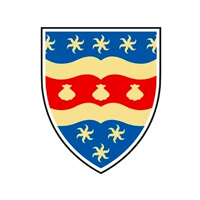fees waived
Mathematics with Computer Science, BSc (Hons)
University of Plymouth, United Kingdom
Subject ranking
UK / Times 44th
UK / The Times 47th
UK / CUG 53rd
Costs
food & rentS$16.6K / year
Entry requirements
Scholarships
Unlimited quantity
Unlimited quantity
Unlimited quantity
Limited quantity
Information
Code
Code
Intakes
Website (External)
Programmes
Information
Duration
2028
Course summary
If you love Mathematics and Computer Science then this degree is for you. The two subjects have common roots stretching back to the dawn of computing and together have solved some of the most fundamental problems in science and industry. You will explore the beauty of mathematics in familiar areas such as calculus, algebra and probability, taught in a new and inspiring way, and extend your skills into computing-intensive topics such as fluid dynamics, artificial intelligence and high performance computing. As a graduate of this degree you can exploit the increase in available computing power, which is key to future economic growth and enhances your employability.
- Acquire state-of-the-art mathematical and computing skills that are highly sought after by industry, including machine learning and optimisation.
- Understand and develop algorithms that are essential for the modern world, while mastering computer programming using languages such as Python and R. You will also be trained in parallel computing, something rarely offered at undergraduate level, using our campus supercomputer.
- Be inspired by the research activities of staff – interests include artificial intelligence, large scale simulations, offshore renewable energy, quantum physics and environmental statistics. You will be in good company with like-minded people.
- Enjoy new facilities – state of the art lecture theatres, computer laboratories, study and social spaces – in our £50 million teaching and research building opening in 2023.
- Core modules are shared with BSc Mathematics, allowing the flexibility of easy transfer to our other mathematics degrees.
Modules
In Year 1, learn the underlying mathematics that underpins the rest of your degree. Master coding in the industrial software Python, right from the start and apply it in algorithms to solve real-world problems including public key cryptography. You’ll begin by building on the mathematical skills and topics you learnt at school, studying six core modules including calculus, linear algebra, numerical methods, pure mathematics, and probability. We’ve structured the curriculum so that all of our students acquire a common mathematical expertise, so you’ll also have the flexibility to move between courses as you progress.In your second year, you'll expand your rigorous understanding of mathematics, always accompanied by the study of applications. This year also includes topics in artificial intelligence, including evolutionary algorithms and machine learning. Operational research introduces Monte Carlo methods, which rely on randomness and sampling to solve impactful problems.You'll have the opportunity to participate in an optional but highly recommended placement year, providing valuable paid professional experience and helping make your CV stand out. Typically students are paid around £17,000 and placement providers have included the Department for Communities and Local Government, Fujitsu, GlaxoSmithKline, Vauxhall Motors, VirginCare, Visteon and Jagex Games Studio.In your final year, master state-of-the-art topics such as large-scale simulations, machine learning from a Bayesian perspective, and big data. Options include elliptic curve cryptography, quantum computing and optimisation of problems such as wind turbine placement. You also do an individual or group project module, which offers you the chance to study a topic of your choice in depth.
Qualified teacher status (QTS)
To work as a teacher at a state school in England or Wales, you will need to achieve qualified teacher status (QTS). This is offered on this course for the following level:- Course does not award QTS
In Year 1, learn the underlying mathematics that underpins the rest of your degree. Master coding in the industrial software Python, right from the start and apply it in algorithms to solve real-world problems including public key cryptography. You’ll begin by building on the mathematical skills and topics you learnt at school, studying six core modules including calculus, linear algebra, numerical methods, pure mathematics, and probability. We’ve structured the curriculum so that all of our students acquire a common mathematical expertise, so you’ll also have the flexibility to move between courses as you progress. In your second year, you'll expand your rigorous understanding of mathematics, always accompanied by the study of applications. This year also includes topics in artificial intelligence, including evolutionary algorithms and machine learning. Operational research introduces Monte Carlo methods, which rely on randomness and sampling to solve impactful problems. You'll have the opportunity to participate in an optional but highly recommended placement year, providing valuable paid professional experience and helping make your CV stand out. Typically students are paid around £17,000 and placement providers have included the Department for Communities and Local Government, Fujitsu, GlaxoSmithKline, Vauxhall Motors, VirginCare, Visteon and Jagex Games Studio. In your final year, master state-of-the-art topics such as large-scale simulations, machine learning from a Bayesian perspective, and big data. Options include elliptic curve cryptography, quantum computing and optimisation of problems such as wind turbine placement. You also do an individual or group project module, which offers you the chance to study a topic of your choice in depth.
A local representative of University of Plymouth in Singapore is available online to assist you with enquiries about this course.

